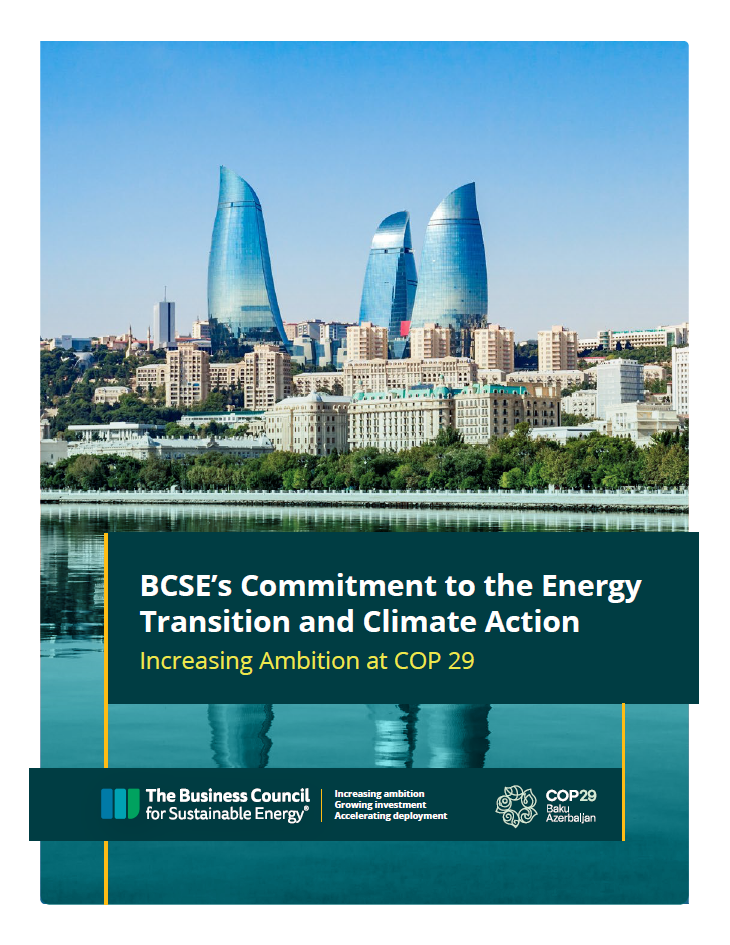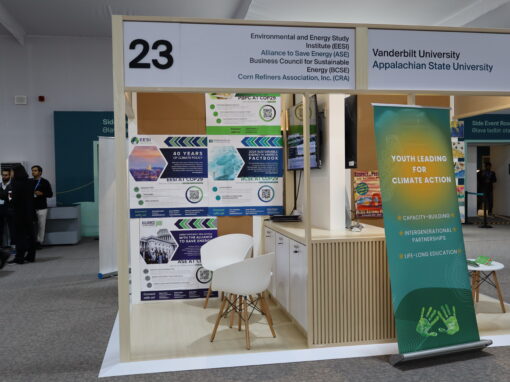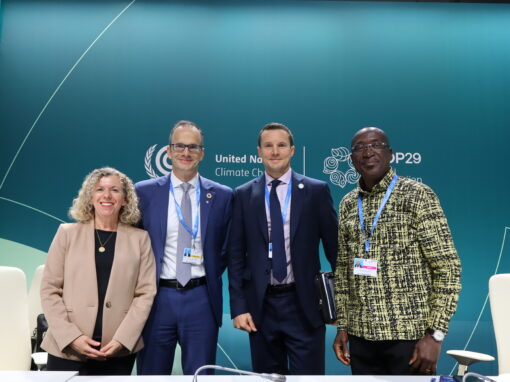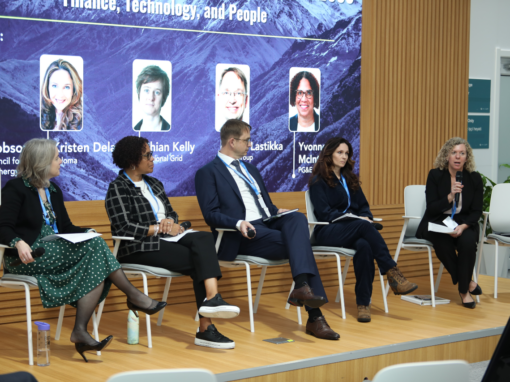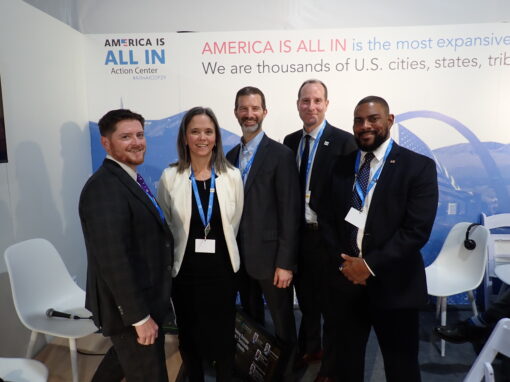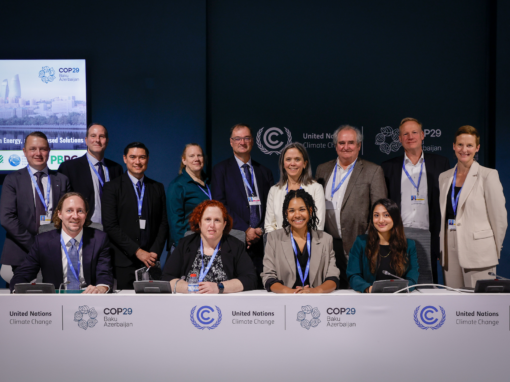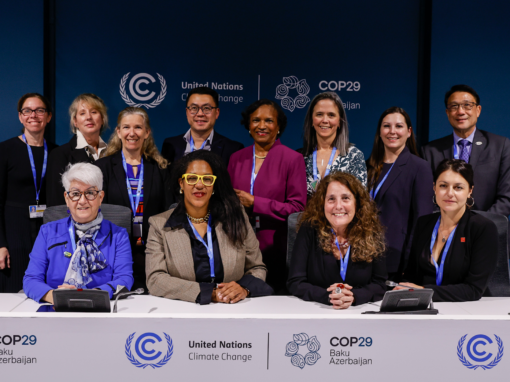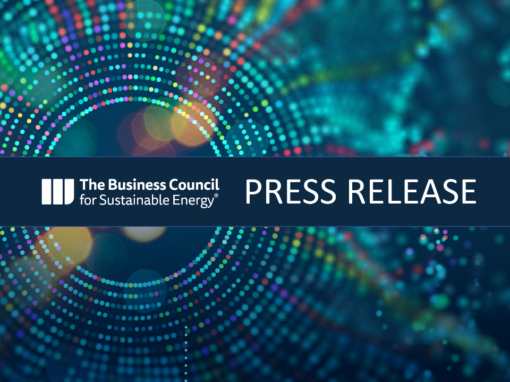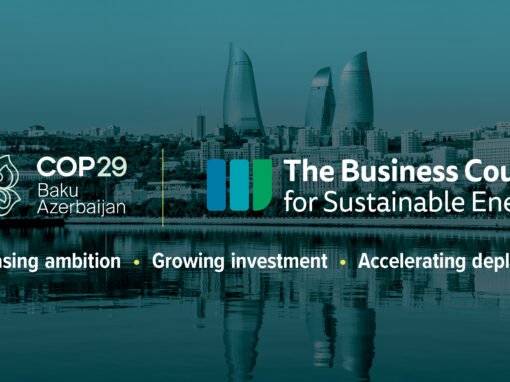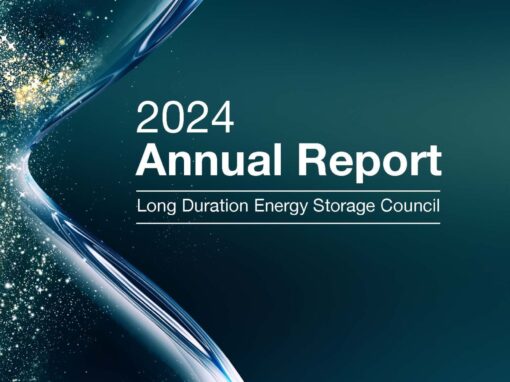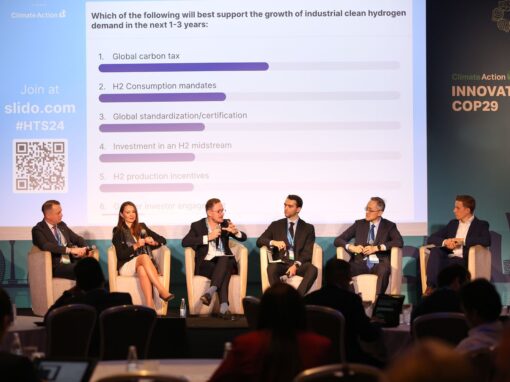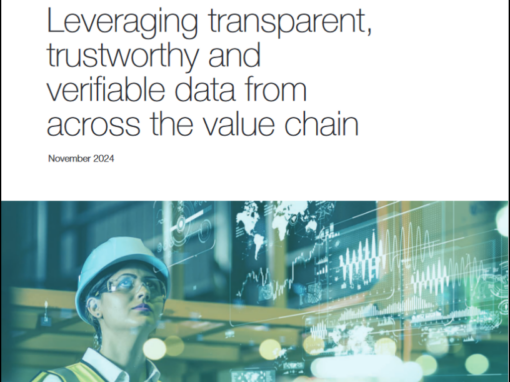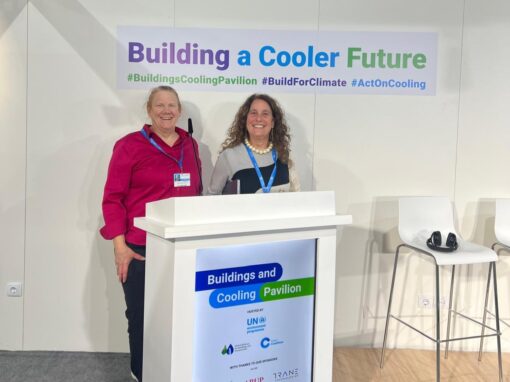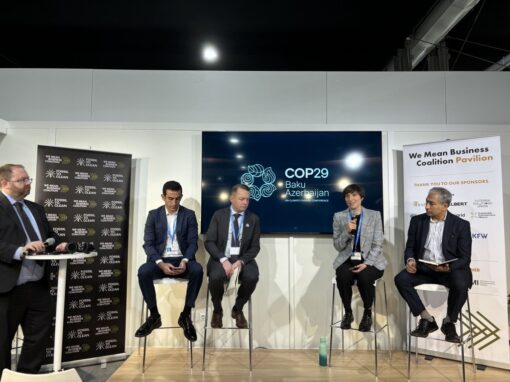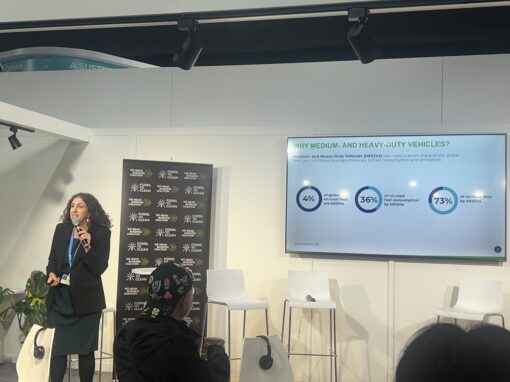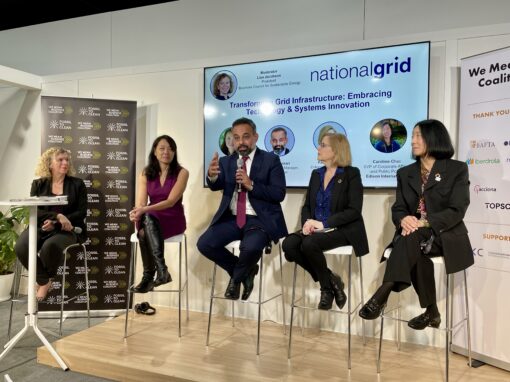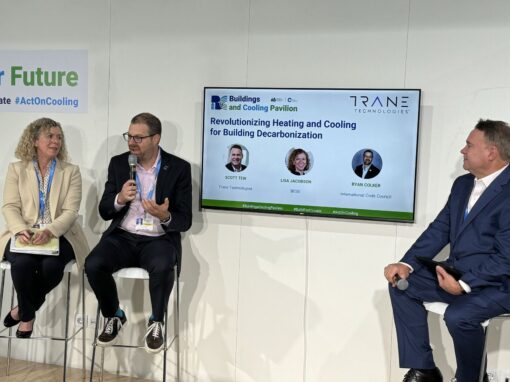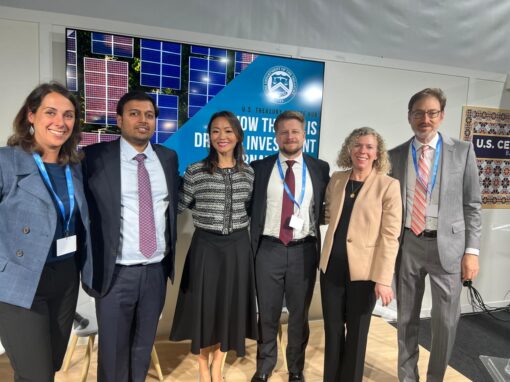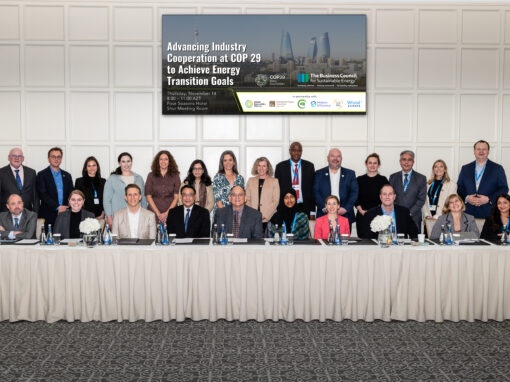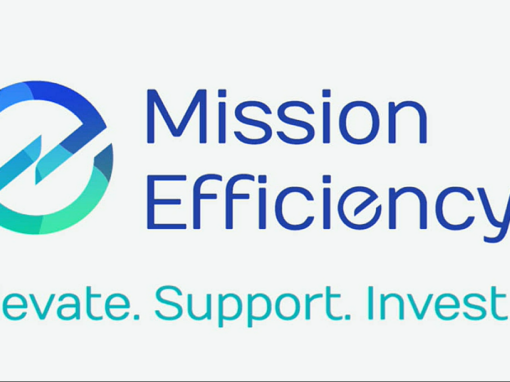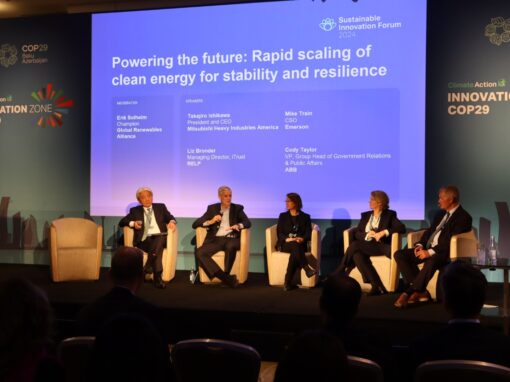Increasing Ambition. Growing Investment. Accelerating Deployment.
The Business Council for Sustainable Energy at COP 29
Increasing Ambition. Growing Investment. Accelerating Deployment.
The Business Council for Sustainable Energy (BCSE) – a coalition of companies and trade associations that deploy clean energy and decarbonization solutions, with a sector focus on energy efficiency, natural gas, and renewable energy – joins the 29th Conference of the Parties (COP 29) to the United Nations Framework Convention on Climate Change in Baku, Azerbaijan. BCSE brings a delegation of executives from the private sector that innovate, finance, and deploy technology solutions and systems that reduce greenhouse gas emissions, enhance resilience, and drive economic growth. BCSE’s COP delegation includes executives from the energy efficiency, energy storage, natural gas, renewable energy, sustainable transportation, and emerging decarbonization technology industries.
Back to Top
BCSE’S Commitment to the Energy Transition and Climate Action
At COP 29, BCSE is calling for implementing solutions that can help countries make more ambitious national climate targets and mobilize greater financial flows as they work to achieve the objectives of the Paris Agreement. Learn more about BCSE’s COP 29 objectives in our position paper.
Download the COP 29 Position Paper
Frequently Asked Questions
Who is in the BCSE Delegation to COP 29?
See this list of more than 30 companies, organizations, and partners that are a part of BCSE’s delegation to COP 29.
What are BCSE’s objectives for COP 29?
At COP 29, the BCSE coalition is committed to work with governments, businesses, and stakeholders to:
Increase Ambition
- Secure greater ambition in the next round of nationally determined contributions (NDCs) to the Paris Agreement, including specific milestones related to reaching the energy transition goals articulated in the COP 28 outcome. Nearly 200 governments have committed to publish by February 2025 upgraded NDCs covering the period 2025-2035 that are intended to align all sectors of our economies with 1.5°C.
- Build support for the new call for a global energy storage target of 1.5 Terawatt hours by 2030.
Grow Investment
- Identify ways to optimize technology deployment and public and private international finance flows to unlock bottlenecks in the energy transition and to increase readiness and resilience of communities, especially those most vulnerable to climate impacts.
- Share the operational realities of the business of climate action – including carbon accounting and reporting, project development and technology deployment, and securing finance – to bring awareness to both the opportunities and challenges of implementation and ultimately to enable the raising of climate ambition.
Accelerate Deployment
- Continue to build momentum and draw attention to how countries can work with the private sector to:
- double the global rate of energy efficiency improvements and triple renewable energy capacity globally by 2030
- accelerate methane emissions reductions
- reduce road transport emissions
- build net-zero emissions systems by mid-century
- Connect across civil society constituencies to ensure that our clean energy future is sustainable and to discuss concerns around transparency and reporting, community engagement, workforce development, supply chains, and economic growth.
Learn more in BCSE’s COP 29 position paper.
Why does BCSE attend the annual Conference of the Parties (COP)?
Established in 1992 in advance of the first Earth Summit or United Nations Conference on Environment and Development (UNCED), BCSE has been an accredited business observer to the United Nations for more than 30 years.
BCSE has led a delegation to each of the three UNCED Summits (1992, 2002, 2012) and has had a presence at nearly all the United Nations Framework Convention on Climate Change (UNFCCC) annual Conference of the Parties (COP) sessions and most inter-sessional meetings.
BCSE attends the COP with these guiding objectives to:
- Ensure a broad portfolio of decarbonizing energy efficiency and clean energy solutions are utilized to close the global emissions gap and to meet national mitigation and adaptation goals.
- Share implementation experiences, challenges, and opportunities – from community engagement to technology deployment – with governments and stakeholders.
- Discuss the important role of policy certainty, market-based mechanisms, finance, capacity building, technology transfer, monitoring, reporting and verification, and partnership with the private sector to foster greater climate action.
Businesses in the BCSE delegation are deploying the energy efficiency and clean energy solutions needed to reduce energy demand, accelerate the energy transition, and keep global temperature rise below 1.5°C. Business voices are needed at COP to provide insight from the real economy on what policies best catalyze investment and deployment.
What is a typical day-in-the life at COP for BCSE?
The day for BCSE begins with preparation and review of the latest news out of COP and the UNFCCC Daily Program, as well as a check-in at the daily business and industry NGO (BINGO) briefing hosted by the International Chamber of Commerce to get oriented for the day.
Throughout the two weeks of COP, BCSE’s delegation works to support the international negotiations by advocating for ambitious global commitments to advance the clean energy transition, and demonstrating to countries and civil society the solutions the private sector can provide. Members of BCSE’s delegation provide energy efficiency, clean energy, and decarbonization technologies and services that help countries and communities reduce global greenhouse gas emissions, increase resilience, and meet their climate action goals. Learn more about BCSE’s advocacy objectives at COP 29 here.
Although day-by-day schedules vary, BCSE’s delegation engages in this advocacy at COP by:
- Meeting with U.S. and foreign national and sub-national governments to share the importance of using policy tools to broaden the market for clean energy and demonstrate how the private sector can help the public sector achieve its climate mitigation and adaptation goals.
- Meeting with U.S. and international civil society stakeholders to listen and learn and to identify ways to work together to accelerate the energy transition.
- Convening global clean energy advocates to discuss strategies for advancing the clean energy transition.
- Connecting our members to share their business views at side events, exhibits, press conferences, and other events held in the blue zone.
- Attending conferences held outside of the blue zone to network and share our views.
What is the energy transition?
The energy transition is an economic opportunity to shift how we generate and consume energy from high-emission to low- and zero-emission resources. The clean energy and energy efficiency technology solutions needed to do so are available today.
BCSE advocates for the deployment of a broad portfolio of solutions that can be adjusted for regional or local circumstances. We are in a critical stage of implementation, of aligning market and policy signals to deploy and build a positive feedback loop that ensures both political and public support for greater investment and growth.
The tricky part is that the transition takes time. The good news is that the pace is picking up, even though some may feel it is not fast enough. The reality is that all energy sources need to adapt and evolve if we are to meet our shared decarbonization goals. Communities that are impacted need to be involved in the planning and implementation of the transition. The private sector cannot go it alone.
BCSE works through its advocacy to share the realities of the various layers of the energy transition that need alignment. BCSE’s annual and free publication produced with BloombergNEF, the Sustainable Energy in America Factbook, chronicles the pace of the transition in the United States over the past decades.
What are nationally-determined contributions (NDCs) and why do they matter to the energy transition?
Nearly 200 governments have committed to publish by February 2025 upgraded national climate plans covering the period 2025-2035 that are intended to align all sectors of our economies with 1.5°C. As a basis for national policy making and implementation, these plans must reduce political uncertainty and create the enabling environment for investment at scale. We know this can unlock trillions in private investment to protect our health and nature, scale clean energy, support industries to compete in a low carbon economy, and safeguard living standards equitably for our people.
This is the critical decade for keeping the Paris Agreement’s 1.5°C target in sight. The NDC ratchet in 2025 provides the opportunity for governments to respond to this urgency by sending a clear signal and setting strategic ambition at both national and sector level.
At COP 29, BCSE is calling for governments to secure greater ambition in the next round of NDCs, including specific milestones related to reaching the energy transition goals articulated in the COP 28 outcome.
Why is international climate finance important to BCSE?
BCSE understands the central role that international finance flows – both public and private – play to advance international cooperation on climate and to deliver emissions reductions on the scale that science demands. In the context of the negotiations under the UNFCCC at COP 29, the discussion amongst governments centers around developed countries providing additional assistance to developing countries, especially those most vulnerable to impacts of the changing climate today. This finance is needed to help countries build out their own capacity and to implement policies and projects that can help meet their mitigation, adaptation, and development-related goals.
At home in Washington, DC, BCSE is a consistent advocate for the annual appropriations in the U.S. federal budget for international climate and clean energy programs.
BCSE greatly values the long-standing and important leadership role that the United States plays in the global community to support developing countries as they build public and private infrastructure that incorporates American values and generates American opportunities. These investments help to create an enabling legal, financial, and regulatory environment that is needed for U.S. companies to effectively enter and prosper in developing countries. This public finance strengthens U.S. credibility overseas and generates increased market demand for high quality American clean energy and energy efficiency solutions.
BCSE asks Congress to provide continued and robust levels of funding for U.S. bilateral programs for adaptation, renewable energy, and sustainable landscapes; along with contributions to multilateral programs, funds, and intergovernmental institutions with which the United States has established leadership and roles.
Schedule of Events
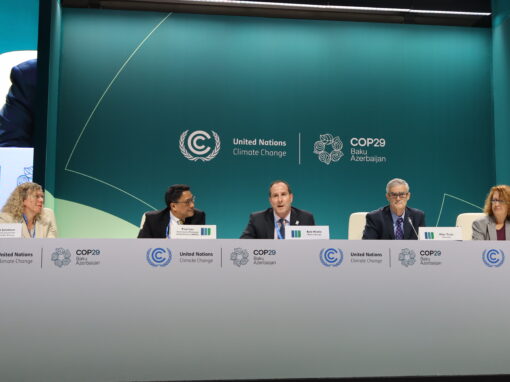
Business Leaders on Solutions to Bridge the Clean Energy Investment and Deployment Gap
November 16, 2024
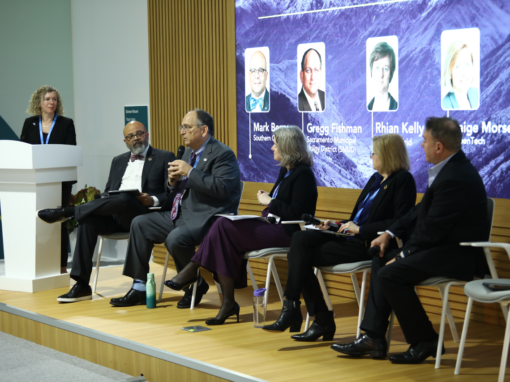
Broadening the Benefits of Clean Energy: Community Engagement and Next Generation Workforce Development
November 18, 2024
BCSE In Action – News
New U.S. Climate Goal Sets Foundation for Competitive Industry Success
“This goal is the North Star and should guide public and private sector investment to secure America’s position as a global supplier of affordable, reliable, and sustainable energy solutions,” said BCSE President Lisa Jacobson. read more
BCSE Reflections: Growing Investment Through Partnerships at COP 29
As BCSE’s delegation shared private sector solutions to address the global challenge of climate change mitigation and adaptation, country negotiators did worked to find compromise on difficult financial questions. read more
COP 29 Agreement on Carbon Markets and New Global Financial Goal Opens Market Pathways for Greater Action on Climate Change
BCSE led a delegation of 30 U.S. businesses and clean energy trade organizations to Baku to attend COP 29 and call for increasing ambition, growing investment, and accelerating deployment. read more
LDES Council Calls for Scaling Up Energy Storage Deployment
Last week at COP 29, the Long Duration Energy Storage (LDES) Council released its Annual Report, which underscores the urgent need to accelerate the deployment of LDES technologies. read more
Innovative Pathways to Decarbonize Hard-to-Abate Industries With GTI Energy
GTI Energy Executive Director Zane McDonald joined the Hydrogen Innovation Summit at the Climate Action Innovation Zone alongside COP 29 to discuss hydrogen infrastructure, investment strategies, and the transition to a resilient, decarbonized economy. read more
International Code Council Releases New Universal Protocol for the Built Environment
At COP 29, the International Code Council and Standards Australia announced a New Universal Data Protocol for the built environment, aiming to utilize existing methods to enable transparent, auditable and verifiable data exchange for effective reporting and compliance across the building and construction industry. read more
How Data Shapes Energy Efficiency in the Built Environment With Autodesk and Trane Technologies
BCSE members Autodesk and Trane Technologies elevated the topic of energy efficiency data in an event at the Cooling and Buildings Pavilion that also featured Arup and the NGO Built Change. read more
Charting the Course for Aviation Fuel in Emerging Markets With Topsoe
At an event on Wednesday, November 20, Asmara Klein, Head of Strategic Policy Partnerships for BCSE member Topsoe shared that U.S. sustainable aviation fuel (SAF) producers are expected to increase their output from approximately 6.7 Mt in 2030 to 76 MT by 2050. read more
Breaking Barriers and Making Connections With CALSTART
On Tuesday, November 19, BCSE supporter CALSTART hosted an innovative networking event to bring together the zero-emission transport and energy sectors. read more
Transforming Grid Infrastructure With National Grid
BCSE members National Grid and AspenTech were featured panelists in a side event at the We Mean Business Pavillion on transforming the electric grid through systems and technology innovation. read more
BCSE Hosts Annual International Dinner at COP 29
BCSE hosted its annual clean energy industry dinner at COP 29 at the beautiful Hill Restaurant on Friday, November 15 to toast to the end of the conference's first week. read more
BCSE Discusses Built Environment Decarbonization at the Buildings & Cooling Pavilion
BCSE President Lisa Jacobson discussed using technology, building codes, and incentives to decarbonize the built environment. read more
BCSE Highlights the Impact of the IRA at the U.S. Center
BCSE President Lisa Jacobson joined a panel at the U.S. Center on Wednesday to explore the international opportunities supported by the U.S. Inflation Reduction Act (IRA). read more
Advancing Industry Cooperation at COP 29 to Achieve Energy Transition Goals
BCSE hosted a private roundtable on Wednesday, 11/14 that brought together industry voices, partners, and governments to identify market and policy opportunities that will enable them to work together across industry sectors and make tangible progress toward realizing the energy transition goals articulated in paragraph 28 of the COP 28 Global Stock Take outcome. read more
Global Coalition Calls for Stronger Progress on Energy Efficiency at COP 29
“Now is the time to act,” said BCSE President Lisa Jacobson. “If we do not raise energy efficiency as a priority now, we are at risk of missing our collective climate goals. read more
Emerson Calls for Rapid Scaling of Clean Energy at the Sustainable Innovation Forum
The off-site Sustainable Innovation Forum, hosted by Climate Action, kicked off on Wednesday with powerful panels on the future of stable, scalable clean energy development. read more
We Can Start Reducing Excess Atmospheric Heat Right Now. Here’s How.
Cutting super pollutants now will start reducing atmospheric heat immediately, help us avoid irreversible climate tipping points, blunt the impact of ever more costly climate disasters, and build a bridge to net zero by mid-century. read more
Announcing the U.S. Department of Energy’s Liftoff Report on Sustainable Aviation Fuel
On November 13 at COP 29, U.S. Department of Energy Chief Commercialization Officer and Director of the Office of Technology Transitions Dr. Vanessa Chan announced the publication of DOE’s Pathways to Commercial Liftoff Report on Sustainable Aviation Fuel (SAF). read more
Sponsors







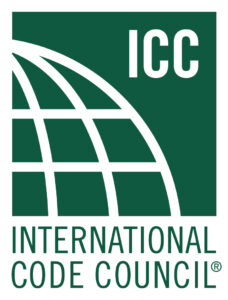













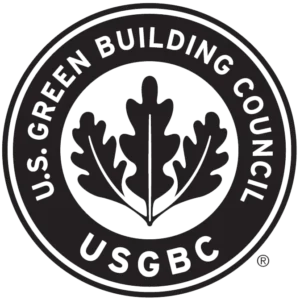
Market Trends & Factbook
The 2026 edition of the Sustainable Energy in America Factbook provides up-to-date, accurate market intelligence about the broad range of industries that are contributing to the country’s move toward more efficient energy usage and cleaner energy production.

